Shared posts
:: دانلود کتاب «ویروسهای ذهن» نوشتهٔ «ریچارد داوکینز» ترجمه «امیر غلامی»
با ۳۷ امتیاز و ۰ نظر فرستاده شده در بخش دانش و فناوری
لینک مستقیم
:: سه جایگزین خوب برای گوگل ریدر
با ۳۹ امتیاز و ۰ نظر فرستاده شده در بخش دانش و فناوری
لینک مستقیم
Updated list of Bites Interviews by theme
Bites podcast links arranged by theme
updated 20th August 2013
New features:
--272 distinct titles
--11 new podcasts added: episodes 217 (same sex marriage), 218 (philosophy's two cultures), S16 (the illusion of equality for women), 219 (green virtues), 220 (the Chinese Room), S17 (the case for equality), 221 (humour and morality), 222 (the afterlife), S18 (austerity and death), 223 (Hume on taste) and 224 (weakness of will).
--episode 090 (alternative hedonism) is added to the section on Resources and Exchange.
--the links to all the Ethics Bites podcasts have been corrected, and a couple other links have been fixed. Please let us know if you find any more incorrect or broken links!
Labels:
xxx (3 digit number) = Philosophy Bites (including 4 Ethics Bites and all Bio-Ethics Bites podcasts)
Exx = the other Ethics Bites podcasts
Mxx = Multiculturalism Bites
Sxx = Social Science Bites
Fxx = Free Speech Bites
About Philosophy
009 Edward Craig on What Is Philosophy?
020 Jonathan Rée on Philosophy as an Art
027 Alain de Botton on Philosophy Within and Outside the Academy
143 Martha Nussbaum on the Value of the Humanities
107 John Armstrong on What Can You Do With Philosophy?
002 Mary Warnock on Philosophy and Public Life
218 Simon Glendinning on Philosophy's Two Cultures (Analytic and Continental)
170 Brian Leiter on the Analytic/Continental Distinction
133 Joshua Knobe on Experimental Philosophy
History and Biography
205 Who's Your Favourite Philosopher?
179 Adrian Moore on Philosophy and Its History
022 Anthony Kenny on his New History of Philosophy
073 Ray Monk on Philosophy and Biography
167 Sean Kelly on Homer on Philosophy
087 Raymond Tallis on Parmenides
072 M.M. McCabe on Socratic Method
001 Simon Blackburn on Plato's Cave
088 M.M. McCabe on (Plato’s) Paradox of Inquiry
026 Angie Hobbs on Plato on Erotic Love
169 Melissa Lane on Plato and Sustainability
045 Melissa Lane on Plato and Totalitarianism
036 Angie Hobbs on Plato on War
224 Jessica Moss on Plato and Aristotle on Weakness of Will
096 Terence Irwin on Aristotle's Ethics
079 Roger Crisp on (Aristotle on) Virtue
028 Myles Burnyeat on Aristotle on Happiness
115 Don Cupitt on Jesus as Philosopher
067 Peter Adamson on Plotinus on Evil
204 Peter Adamson on Avicenna's Flying Man Thought Experiment
056 Anthony Kenny on Aquinas' Ethics
068 Quentin Skinner on Machiavelli's The Prince
149 Sarah Bakewell on Michel de Montaigne
F02 Stephanie Merritt on Giordano Bruno
023 Quentin Skinner on Hobbes on the State
215 Noel Malcolm on Thomas Hobbes' Leviathan in Context
042 A.C. Grayling on Descartes' Cogito
210 Colin McGinn on Descartes on Innate Knowledge
104 Ben Rogers on Pascal's Pensées
062 John Dunn on Locke on Toleration
030 Susan James on Spinoza on the Passions
109 John Campbell on Berkeley's Puzzle
049 Peter Millican on Hume's Significance
153 Paul Russell on David Hume's Philosophy of Irreligion
025 Stewart Sutherland on Hume on Design
223 Michael Martin on Hume on Taste
065 Melissa Lane on Rousseau on Civilization
140 Nick Phillipson on Adam Smith on What Human Beings Are Like
075 Adrian Moore on Kant's Metaphysics
037 Richard Bourke on Edmund Burke on Politics
F07 Denis MacShane on Thomas Paine
174 Philip Schofield on Jeremy Bentham's Utilitarianism
124 Robert Stern on Hegel on Dialectic
048 Janet Radcliffe Richards on (Mill on) Men and Women's Natures
010 Roger Crisp on Mill’s Utilitarianism
051 Richard Reeves on Mill's On Liberty
070 Clare Carlisle on Kierkegaard's Fear and Trembling
054 Jonathan Wolff on Marx on Alienation
159 Peter Singer on Henry Sidgwick's Ethics
108 Brian Leiter on Nietzsche Myths
077 Christopher Janaway on Nietzsche on Morality
071 Aaron Ridley on Nietzsche on Art and Truth
200 Richard Sorabji on Mahatma Gandhi as Philosopher
114 A.C. Grayling on Bertrand Russell's Theory of Descriptions
035 Barry Smith on Wittgenstein's Conception of Philosophy
052 Chandran Kukathas on Hayek's Liberalism
148 Hugh Mellor on Frank Ramsey
F08 DJ Taylor on George Orwell
019 Mary Warnock on Sartre's Existentialism
093 Sebastian Gardner on Jean-Paul Sartre on Bad Faith
029 Henry Hardy on Isaiah Berlin's Pluralism
175 Guy Longworth on J.L. Austin and Ordinary Language
120 Jonathan Wolff on John Rawls' A Theory of Justice
063 Robert Rowland Smith on Derrida on Forgiveness
Knowledge, Thought and Belief
001 Simon Blackburn on Plato's Cave
088 M.M. McCabe on the Paradox of Inquiry
210 Colin McGinn on Descartes on Innate Knowledge
072 M.M. McCabe on Socratic Method
124 Robert Stern on Hegel on Dialectic
031 Julian Baggini on Thought Experiments
220 Daniel Dennett on the Chinese Room
157 Alison Gopnik on the Imagination
164 Dan Sperber on the Enigma of Reason
032 Barry Stroud on Scepticism
212 Fiona Macpherson on Hallucination
042 A.C. Grayling on Descartes' Cogito
049 Peter Millican on Hume's Significance
075 Adrian Moore on Kant's Metaphysics
005 Miranda Fricker on Epistemic Injustice
165 Jonathan Glover on Systems of Belief
Language, Meaning and Truth
114 A.C. Grayling on Bertrand Russell's Theory of Descriptions
199 Tim Crane on Non-Existence
035 Barry Smith on Wittgenstein's Conception of Philosophy
148 Hugh Mellor on Frank Ramsey
118 Robert Talisse on Pragmatism
175 Guy Longworth on J.L. Austin and Ordinary Language
195 Rae Langton on Hate Speech
130 Stephen Neale on Meaning and Interpretation
014 Timothy Williamson on Vagueness
135 Daniel Everett on the Nature of Language
Existence and Reality
171 Kit Fine on What is Metaphysics?
087 Raymond Tallis on Parmenides
067 Peter Adamson on Plotinus on Evil
092 Keith Ward on Idealism in Eastern and Western Philosophy
183 Galen Strawson on Panpsychism
109 John Campbell on Berkeley's Puzzle
114 A.C. Grayling on Bertrand Russell's Theory of Descriptions
199 Tim Crane on Non-Existence
091 David Papineau on Scientific Realism
141 Helen Beebee on Laws of Nature
193 Huw Price on Backward Causation
082 Christopher Shields on Personal Identity
101 Paul Snowdon on Persons and Animals
021 Tim Crane on Mind and Body
204 Peter Adamson on Avicenna's Flying Man Thought Experiment
013 David Papineau on Physicalism
197 Daniel Dennett on Free Will Worth Wanting
102 Luciano Floridi on the Fourth Revolution
126 David Chalmers on the Singularity
161 Nick Bostrom on the Simulation Argument
Religion
104 Ben Rogers on Pascal's Pensées
056 Anthony Kenny on Aquinas' Ethics
062 John Dunn on Locke on Toleration
F04 Irshad Manji on Islam and Free Expression
070 Clare Carlisle on Kierkegaard's Fear and Trembling
003 Stephen Law on The Problem of Evil
103 Marilyn McCord Adams on Evil
067 Peter Adamson on Plotinus on Evil
215 Noel Malcolm on Thomas Hobbes' Leviathan in Context
049 Peter Millican on Hume's Significance
153 Paul Russell on David Hume's Philosophy of Irreligion
025 Stewart Sutherland on Hume on Design
086 Don Cupitt on Non-Realism About God
115 Don Cupitt on Jesus as Philosopher
012 Anthony Grayling on Atheism
106 Walter Sinnott-Armstrong on Morality Without God
038 Richard Norman on Humanism
172 Alain de Botton on Atheism 2.0
Body and Mind
082 Christopher Shields on Personal Identity
180 Jeff McMahan on Moral Status
101 Paul Snowdon on Persons and Animals
021 Tim Crane on Mind and Body
204 Peter Adamson on Avicenna's Flying Man Thought Experiment
183 Galen Strawson on Panpsychism
013 David Papineau on Physicalism
162 Frank Jackson on What Mary Knew
203 Tim Bayne on the Unity of Consciousness
123 Ned Block on Consciousness
128 Pat Churchland on Eliminative Materialism
074 Barry C. Smith on Neuroscience
208 John Campbell on Schizophrenia
212 Fiona Macpherson on Hallucination
135 Daniel Everett on the Nature of Language
220 Daniel Dennett on the Chinese Room
157 Alison Gopnik on the Imagination
121 Galen Strawson on the Sense of Self
019 Mary Warnock on Sartre's Existentialism
030 Susan James on Spinoza on the Passions
026 Angie Hobbs on Plato on Erotic Love
E09 Roger Scruton on Sex and Perversion
048 Janet Radcliffe Richards on Men and Women's Natures
102 Luciano Floridi on the Fourth Revolution
126 David Chalmers on the Singularity
161 Nick Bostrom on the Simulation Argument
Decision Making and Responsibility
111 Richard Bradley on Understanding Decisions
224 Jessica Moss on Plato and Aristotle on Weakness of Will
060 Jennifer Hornsby on Human Agency
093 Sebastian Gardner on Jean-Paul Sartre on Bad Faith
185 Adina Roskies on Neuroscience and Free Will
138 Gideon Rosen on Moral Responsibility
177 Neil Levy on Moral Responsibility and Consciousness
147 Jonathan Glover on Personality Disorder and Morality
192 Hanna Pickard on Responsibility and Personality Disorder
173 Nicola Lacey on Criminal Responsibility
155 David Eagleman on Morality and the Brain
197 Daniel Dennett on Free Will Worth Wanting
142 Philip Pettit on Group Agency
050 David Miller on National Responsibility
Traditional Ethical Theories
017 Brad Hooker on Consequentialism
174 Philip Schofield on Jeremy Bentham's Utilitarianism
010 Roger Crisp on Mill’s Utilitarianism
159 Peter Singer on Henry Sidgwick's Ethics
163 Philip Pettit on Consequentialism
096 Terence Irwin on Aristotle's Ethics
028 Myles Burnyeat on Aristotle on Happiness
152 Pascal Bruckner on Happiness
056 Anthony Kenny on Aquinas' Ethics
077 Christopher Janaway on Nietzsche on Morality
166 Paul Boghossian on Moral Relativism
016 Simon Blackburn on Moral Relativism
E04 Miranda Fricker on Blame And Historic Injustice
029 Henry Hardy on Isaiah Berlin's Pluralism
122 Susan Neiman on Morality in the 21st Century
Recent Approaches to Ethics
191 Jonathan Dancy on Moral Particularism
156 John Mikhail on Universal Moral Grammar
216 John Mikhail on Battery and Morality
098 Walter Sinnott-Armstrong on Moral Psychology
133 Joshua Knobe on Experimental Philosophy
S08 Jonathan Haidt on Moral Psychology
094 Julian Savulescu on the 'Yuk' Factor
M03 Martha Nussbaum on Disgust
187 Fiery Cushman on Moral Luck
202 Liane Young on Mind and Morality
078 Anthony Appiah on Experiments in Ethics
E03 Michael Otsuka on Trolleys, Killing And Double Effect
194 Molly Crockett on Brain Chemistry and Moral-Decision Making
196 Pat Churchland on What Neuroscience Can Teach Us About Morality
Ethics of Health and Medicine
180 Jeff McMahan on Moral Status
057 Mary Warnock on the Right to Have a Baby
E11 Brenda Almond on the Family
S13 Sarah Franklin on the Sociology of Reproductive Technologies
178 Julian Savulescu on Designer Babies
099 Allen Buchanan on Enhancement
184 Nick Bostrom on the Status Quo Bias
055 Michael Sandel on Genetic Enhancement in Sport
058 Donna Dickenson on Body Shopping
100 Michael Sandel on What Shouldn't Be Sold
E07 Janet Radcliffe Richards on Organ Transplants
190 Tim Lewens on Selling Organs
024 Onora O'Neill on Medical Consent
160 Luc Bovens on Catholicism and HIV
182 Peter Singer on Life and Death Decision-Making
095 Raymond Tallis on Assisted Dying
S18 David Stuckler on Austerity and Death
188 Jonathan Wolff on Political Bioethics
064 John Broome on Weighing Lives
117 Thomas Pogge on Global Justice and Health
Ways of Living
122 Susan Neiman on Morality in the 21st Century
129 Susan Wolf on Meaning In Life
167 Sean Kelly on Homer on Philosophy
214 Mark Rowlands on Philosophy and Running
072 M.M. McCabe on Socratic Method
149 Sarah Bakewell on Michel de Montaigne
F02 Stephanie Merritt on Giordano Bruno
051 Richard Reeves on Mill's On Liberty
004 John Cottingham on The Meaning of Life
222 Samuel Scheffler on the Afterlife
081 Alexander Nehamas on Friendship
E09 Roger Scruton on Sex and Perversion
217 Les Green on Same Sex Marriage
063 Robert Rowland Smith on Derrida on Forgiveness
200 Richard Sorabji on Mahatma Gandhi as Philosopher
E06 Richard Norman on What's Wrong With Killing?
211 Jeff McMahan on Gun Control
053 Peter Singer on Using Animals
127 Jeff McMahan on Vegetarianism
201 Gary L. Francione on Animal Abolitionism
113 Catalin Avramescu on the Idea of Cannibalism
040 Richard Tuck on Free Riding
132 Peter Singer on the Life You Can Save
033 G.A. Cohen on Inequality of Wealth
E13 James Garvey on Climate Change
219 Dale Jamieson on Green Virtues
169 Melissa Lane on Plato and Sustainability
090 Kate Soper on Alternative Hedonism
Art, Beauty and Taste
223 Michael Martin on Hume on Taste
046 Derek Matravers on the Definition of Art
134 Cynthia Freeland on Portraits
207 Kendall Walton on Photography
007 Alain de Botton on The Aesthetics of Architecture
221 Noël Carroll on Humour and Morality
F05 Martin Rowson on Free Speech and Cartoons
F03 Zarganar on Freedom of Expression
069 Alex Neill on the Paradox of Tragedy
071 Aaron Ridley on Nietzsche on Art and Truth
039 Stephen Mulhall on Film as Philosophy
E12 Matthew Kieran on Art, Censorship And Morality
119 Jerrold Levinson on Music and Eros
Free Expression and Its Impact
135 Daniel Everett on the Nature of Language
S03 Richard Sennett on Co-Operation
149 Sarah Bakewell on Michel de Montaigne
197 Daniel Dennett on Free Will Worth Wanting
051 Richard Reeves on Mill's On Liberty
F04 Irshad Manji on Islam and Free Expression
059 Tim Scanlon on Free Speech
F07 Denis MacShane on Thomas Paine
F08 DJ Taylor on George Orwell
F01 Jonathan Dimbleby on Free Speech and Censorship
M07 Alan Haworth on Free Speech and Multiculturalism
F05 Martin Rowson on Free Speech and Cartoons
195 Rae Langton on Hate Speech
E10 Richard Posner on Copyright
E12 Matthew Kieran on Art, Censorship And Morality
F02 Stephanie Merritt on Giordano Bruno
F03 Zarganar on Freedom of Expression
F10 Ma Jian on Free Expression in China
F06 Natalia Kaliada on Free Speech and Belarus
200 Richard Sorabji on Mahatma Gandhi as Philosopher
F09 Timothy Garton Ash on Global Free Speech
Social Relations and Society
S02 Rom Harré on What is Social Science?
S03 Richard Sennett on Co-Operation
005 Miranda Fricker on Epistemic Injustice
048 Janet Radcliffe Richards on Men and Women's Natures
S07 Paul Seabright on the Relationship Between the Sexes
S16 Angela McRobbie on the Illusion of Equality for Women
217 Les Green on Same Sex Marriage
S13 Sarah Franklin on the Sociology of Reproductive Technologies
S14 Ann Oakley on Women’s Experience of Childbirth
E11 Brenda Almond on the Family
S05 Sonia Livingstone on Children and the Internet
209 Tom Sorell on Surveillance
M03 Martha Nussbaum on Disgust
S10 Toby Miller on Cultural Studies
S04 Avner de-Shalit on the Spirit of Cities
S15 Lawrence Sherman on Criminology
S09 Steven Pinker on Violence and Human Nature
Resources and Exchange
140 Nick Phillipson on Adam Smith on What Human Beings Are Like
065 Melissa Lane on Rousseau on Civilization
054 Jonathan Wolff on Marx on Alienation
052 Chandran Kukathas on Hayek's Liberalism
120 Jonathan Wolff on John Rawls' A Theory of Justice
189 John Tomasi on Free Market Fairness
015 Jonathan Wolff on Disadvantage
S01 Danny Dorling on Inequality
S17 Kate Pickett on the Case for Equality
137 Alex Voorhoeve on Inequality
033 G.A. Cohen on Inequality of Wealth
M06 David Miller on the Welfare State and Multiculturalism
S06 Robert Shiller on Behavioral Economics
142 Philip Pettit on Group Agency
E08 Alex Oliver on Business Ethics
131 Hillel Steiner on Exploitation
100 Michael Sandel on What Shouldn't Be Sold
064 John Broome on Weighing Lives
S18 David Stuckler on Austerity and Death
117 Thomas Pogge on Global Justice and Health
E13 James Garvey on Climate Change
090 Kate Soper on Alternative Hedonism
Political Values
116 Tzvetan Todorov on the Enlightenment Today
051 Richard Reeves on Mill's On Liberty
F04 Irshad Manji on Islam and Free Expression
206 Alan Ryan on Freedom and Its History
181 Philip Pettit on Republicanism
120 Jonathan Wolff on John Rawls' A Theory of Justice
080 Raymond Geuss on Real Politics
125 Raymond Geuss on Realism and Utopianism in Political Philosophy
043 Anthony Appiah on Cosmopolitanism
008 Anne Phillips on Multiculturalism
M01 Tariq Modood on The History of Multiculturalism
061 Will Kymlicka on Minority Rights
M02 Chandran Kukathas on Varieties of Multiculturalism
062 John Dunn on Locke on Toleration
M09 Susan Mendus on Toleration
M05 Anne Phillips on Multiculturalism and Liberalism
M04 Clare Chambers on Justifying Intervention
M08 John Horton on Political Obligation and Multiculturalism
M10 Nancy Fraser on Recognition and Multiculturalism
M06 David Miller on the Welfare State and Multiculturalism
029 Henry Hardy on Isaiah Berlin's Pluralism
176 Ronald Dworkin on the Unity of Value
Legal Principles and Practices
174 Philip Schofield on Jeremy Bentham's Utilitarianism
M03 Martha Nussbaum on Disgust
217 Les Green on Same Sex Marriage
066 Matthew Kramer on Legal Rights
209 Tom Sorell on Surveillance
216 John Mikhail on Battery and Morality
211 Jeff McMahan on Gun Control
061 Will Kymlicka on Minority Rights
059 Tim Scanlon on Free Speech
F01 Jonathan Dimbleby on Free Speech and Censorship
M07 Alan Haworth on Free Speech and Multiculturalism
195 Rae Langton on Hate Speech
E10 Richard Posner on Copyright
130 Stephen Neale on Meaning and Interpretation
213 John Gardner on Constitutions
138 Gideon Rosen on Moral Responsibility
173 Nicola Lacey on Criminal Responsibility
150 Catherine MacKinnon on Gender Crime
E06 Richard Norman on What's Wrong With Killing?
158 Victor Tadros on Punishment
S15 Lawrence Sherman on Criminology
Political States and Their Actions
045 Melissa Lane on Plato and Totalitarianism
068 Quentin Skinner on Machiavelli's The Prince
110 Tony Coady on Dirty Hands in Politics
F06 Natalia Kaliada on Free Speech and Belarus
023 Quentin Skinner on Hobbes on the State
215 Noel Malcolm on Thomas Hobbes' Leviathan in Context
113 Catalin Avramescu on the Idea of Cannibalism
037 Richard Bourke on Edmund Burke on Politics
213 John Gardner on Constitutions
206 Alan Ryan on Freedom and Its History
181 Philip Pettit on Republicanism
084 Anne Phillips on Political Representation
036 Angie Hobbs on Plato on War
146 Cécile Fabre on Cosmopolitanism and War
112 Jeff McMahan on Killing in War
083 A.C. Grayling on Bombing Civilians in Wartime
089 Chandran Kukathas on Genocide
050 David Miller on National Responsibility
This list was compiled by Seth A. Adelman. To offer feedback, please contact Nigel (via email or comments on his website) or Seth (biteslist AT comcast DOT net).
You can download Seth's explanation of the thematic organisation Download Aboutthethemedlist.
:: لچک چگونه در ایران اجباری شد
با ۶۲ امتیاز و ۰ نظر فرستاده شده در بخش اجتماعی
لینک مستقیم
July 26, 2013

New WEEKLY WEINERSMITH. This episode featuring Zombie Ants. Here's the Kickstarter mentioned in the podcast. It's to help educate kids about evolution, via zombie ants.
How do you want to die?
How do you want to die? Quickly, painlessly, peacefully lying in your own bed?
Most people say that. But then, people seem to cling to their lives, even if that could mean a less peaceful end. When asked whether they would want physicians to perform certain interventions to prolong their lives like CPR (cardiopulmonary resuscitation) or mechanical ventilation (‘breathing machine’), people say ‘yes’.
Interestingly, a study discussed in a Radiolab podcast from earlier this year reveals that contrary to lay people, physicians do not want these life-saving interventions they perform on their patients performed on themselves.
Joseph Gallo, physician and professor for mental health, reports: if physicians are asked whether they would agree to have certain treatments performed on them in case if they were suffering from an irreversible brain injury without terminal illness (a state similar to severe dementia), the vast majority say ‘no’. 90% of physicians don’t want CPR. Around 80% object to mechanical ventilation, dialysis, and the use of a feeding tube. Over 60% even reject the use of antibiotics. The only thing physicians want for themselves is pain medication (over 80%). Lay people, however, generally want all these when presented with the same scenario.
What causes such a big gap between the wishes of lay people and physicians? The simple explanation seems to be: knowledge. Physicians know how these interventions work and how high their success rates are – and what side-effects they can cause. Lay people’s opinion, though, seems to be guided more by the rose-coloured picture medical dramas on TV are painting. A study from the end of the 1990s found that in medical TV dramas like ‘Emergency Room’ and ‘Rescue 911’ when CPR is shown in 75% it leads to the patient walking out of the hospital door cured. In real life, however, only 3% of CPRs lead to a ‘good outcome’, i.e. patients surviving in a healthy condition. A further 3% of patients don’t die, but fall into a chronic vegetative state. An additional 2% of patients are stuck somewhere in between. The remaining 92% die.
But the low success rates of these interventions are not the only fact physicians know better. According to Ken Murray, a retired physician and clinical assistant professor interviewed for the Radiolab podcast, some of these interventions are ‘pretty terrible’. He gives mechanical ventilation as an example: the ventilator enforces a certain breathing rhythm to patients that doesn’t match their own. So patients have the feeling they can’t breathe and unwillingly fight the machine. The only way to get ‘air in and out of them’ is to paralyse them. So they are fully aware of what is happening, but completely helpless because they can’t neither move nor communicate. Murray says that in hospitals ‘a lot of times we are doing things to people that we wouldn’t do to a terrorist’.
Apparently, knowing all that affects the choices of physicians. Murray writes in one of his essays: ‘I cannot count the number of times fellow physicians have told me, in words that vary only slightly, “Promise me if you find me like this that you’ll kill me.” They mean it. Some medical personnel wear medallions stamped “NO CODE” to tell physicians not to perform CPR on them. I have even seen it as a tattoo.’
What should we make of that? In many countries, physicians are required to perform life-sustaining treatments on patients – treatments they wouldn’t want for themselves. Isn’t that telling…?
Alan Turing, Brilliant Mathematician and Code Breaker, Will Be Finally Pardoned by British Government
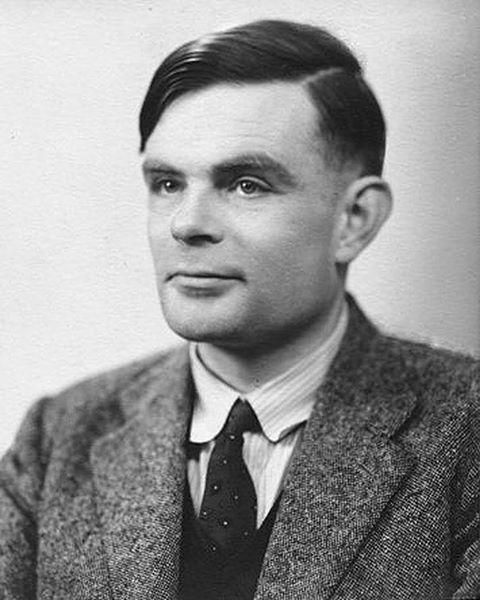 “Alan Turing, the Enigma codebreaker who took his own life after being convicted of gross indecency under anti-homosexuality legislation, is to be given a posthumous pardon,” writes The Guardian today. One of the great mathematicians of the last century, Turing laid the foundations for computer science and played a key role in breaking the Nazi Enigma code during World War II. Despite his contributions to defending Britain, Turing was prosecuted in 1952 for engaging in homosexual acts under an 1885 law that led to the convictions of 49,000 gay men, including Oscar Wilde. It’s a sad tale that gets recounted by another computer pioneer Jaron Lanier here:
“Alan Turing, the Enigma codebreaker who took his own life after being convicted of gross indecency under anti-homosexuality legislation, is to be given a posthumous pardon,” writes The Guardian today. One of the great mathematicians of the last century, Turing laid the foundations for computer science and played a key role in breaking the Nazi Enigma code during World War II. Despite his contributions to defending Britain, Turing was prosecuted in 1952 for engaging in homosexual acts under an 1885 law that led to the convictions of 49,000 gay men, including Oscar Wilde. It’s a sad tale that gets recounted by another computer pioneer Jaron Lanier here:
For years, supporters have called upon the British government to issue a posthumous pardon. And while British Prime Minister Gordon Brown apologized in 2010 for “the appalling way [Turing] was treated,” members of the House of Lords resisted issuing an actual pardon as recently as last year. But, according to The Guardian, legislators are prepared to pass a new bill as early as this October. As many of our readers will be quick to point out, the concept of a pardon is a bit strange, seeing that Turing did nothing wrong. But the willingness of the government to effectively nullify the conviction and reject an archaic law is a welcomed piece of news.
via @philosophybites
Related Content:
Watch the 1996 Film, Breaking the Code, Starring Derek Jacobi
The Enigma Machine: How Alan Turing Helped Break the Unbreakable Nazi Code
N Is a Number: A Portrait of Paul Erdős, the Most Prolific Mathematician of the 20th Century
Richard Feynman on Good, Evil, and the Zen of Science, Plus His Prose Poem for the Glory of Evolution
“I . . . a universe of atoms . . . an atom in the universe.”
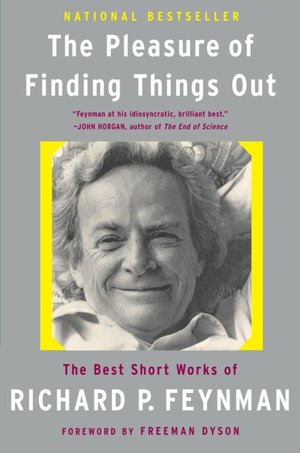 “Everyone’s moral behavior is much more variable than any of us would have initially predicted,” psychology researchers David DeSteno and Piercarlo Valdesolo wrote in their fascinating exploration of the good and evil in all of us, and hardly is this variability more critical than in matters that profoundly affect not merely the fate of the individual but also the future of society at large. In The Pleasure of Finding Things Out: The Best Short Works of Richard P. Feynman (public library) — the same indispensable anthology that gave us The Great Explainer’s insights on the universal responsibility of scientists and the role of scientific culture in modern society, titled after the famous film of the same name — Richard Feynman explores the capacity of science to be a catalyst for both good and evil, and the moral choices steering the direction of the dial:
“Everyone’s moral behavior is much more variable than any of us would have initially predicted,” psychology researchers David DeSteno and Piercarlo Valdesolo wrote in their fascinating exploration of the good and evil in all of us, and hardly is this variability more critical than in matters that profoundly affect not merely the fate of the individual but also the future of society at large. In The Pleasure of Finding Things Out: The Best Short Works of Richard P. Feynman (public library) — the same indispensable anthology that gave us The Great Explainer’s insights on the universal responsibility of scientists and the role of scientific culture in modern society, titled after the famous film of the same name — Richard Feynman explores the capacity of science to be a catalyst for both good and evil, and the moral choices steering the direction of the dial:
The first way in which science is of value is familiar to everyone. It is that scientific knowledge enables us to do all kinds of things and to make all kinds of things. Of course if we make good things, it is not only to the credit of science; it is also to the credit of the moral choice which led us to good work. Scientific knowledge is an enabling power to do either good or bad — but it does not carry instructions on how to use it. Such power has evident value — even though the power may be negated by what one does.
I learned a way of expressing this common human problem on a trip to Honolulu. In a Buddhist temple there, the man in charge explained a little bit about the Buddhist religion for tourists, and then ended his talk by telling them he had something to say to them that they would never forget — and I have never forgotten it. It was a proverb of the Buddhist religion:
“To every man is given the key to the gates of heaven; the same key opens the gates of hell.”
What, then, is the value of the key to heaven? It is true that if we lack clear instructions that determine which is the gate to heaven and which the gate to hell, the key may be a dangerous object to use, but it obviously has value. How can we enter heaven without it?
The instructions, also, would be of no value without the key. So it is evident that, in spite of the fact that science could produce enormous horror in the world, it is of value because it can produce something.
But, for Feynman, science has another value, an entirely personal one, captured in the famous Feynmanism after which this very book is titled. This glorious intellectual enjoyment, he argues, is far too frequently dismissed by those who stress scientists’ moral obligations to society, but it is of equal importance:
Is this mere personal enjoyment of value to society as a whole? No! But it is also a responsibility to consider the value of society itself. Is it, in the last analysis, to arrange things so that people can enjoy things? If so, the enjoyment of science is as important as anything else.
But I would like not to underestimate the value of the worldview which is the result of scientific effort. We have been led to imagine all sorts of things infinitely more marvelous than the imaginings of poets and dreamers of the past. It shows that the imagination of nature is far, far greater than the imagination of man. For instance, how much more remarkable it is for us all to be stuck-half of us upside down — by a mysterious attraction, to a spinning ball that has been swinging in space for billions of years, than to be carried on the back of an elephant supported on a tortoise swimming in a bottomless sea.
He concludes by illustrating his point with what could be best described as a prose poem about the magnificence of evolution, what Richard Dawkins termed “the magic of reality”, Einstein extolled as the ineffable spirit of the universe, and Carl Sagan celebrated as the reverence of nature. The poetic eloquence for which Feynman remains known, which hardly anyone has mastered since, except perhaps Neil deGrasse Tyson and Brian Cox, makes for a beautiful read on par with Diane Ackerman’s Cosmic Pastoral. Feynman writes:
I have thought about these things so many times alone that I hope you will excuse me if I remind you of some thoughts that I am sure you have all had — or this type of thought — which no one could ever have had in the past, because people then didn’t have the information we have about the world today.
For instance, I stand at the seashore, alone, and start to think. There are the rushing waves . . . mountains of molecules, each stupidly minding its own business . . . trillions apart . . . yet forming white surf in unison.
Ages on ages . . . before any eyes could see . . . year after year . . . thunderously pounding the shore as now. For whom, for what? . . . on a dead planet, with no life to entertain.
Never at rest . . . tortured by energy . . . wasted prodigiously by the sun . . . poured into space. A mite makes the sea roar.
Deep in the sea, all molecules repeat the patterns of one another till complex new ones are formed. They make others like themselves . . . and a new dance starts.
Growing in size and complexity . . . living things, masses of atoms, DNA, protein . . . dancing a pattern ever more intricate.
Out of the cradle onto the dry land . . . here it is standing . . . atoms with consciousness . . . matter with curiosity.
Stands at the sea . . . wonders at wondering . . . I . . . a universe of atoms . . . an atom in the universe.
The Pleasure of Finding Things Out is absolutely fantastic in its entirety. Complement it with Feynman’s little-known sketches and drawings and his graphic-novel biography.
Donating = Loving
Bringing you (ad-free) Brain Pickings takes hundreds of hours each month. If you find any joy and stimulation here, please consider becoming a Supporting Member with a recurring monthly donation of your choosing, between a cup of tea and a good dinner:
| ♥ $7 / month♥ $3 / month♥ $10 / month♥ $25 / month |
![]()
You can also become a one-time patron with a single donation in any amount:
 Brain Pickings has a free weekly newsletter. It comes out on Sundays and offers the week’s best articles. Here’s what to expect. Like? Sign up.
Brain Pickings has a free weekly newsletter. It comes out on Sundays and offers the week’s best articles. Here’s what to expect. Like? Sign up.
Brain Pickings takes 450+ hours a month to curate and edit across the different platforms, and remains banner-free. If it brings you any joy and inspiration, please consider a modest donation – it lets me know I'm doing something right.

Slavoj Žižek Responds to Noam Chomsky: ‘I Don’t Know a Guy Who Was So Often Empirically Wrong’
Earlier this month we posted an excerpt from an interview in which linguist Noam Chomsky slams the Slovenian philosopher and cultural critic Slavoj Žižek, along with the late French theorists Jacques Lacan and Jacques Derrida, for cloaking trivial ideas in obscure and inflated language to make them seem profound.
“There’s no ‘theory’ in any of this stuff,” Chomsky says to an interviewer who had asked him about the three continental thinkers, “not in the sense of theory that anyone is familiar with in the sciences or any other serious field. Try to find in all of the work you mentioned some principles from which you can deduce conclusions, empirically testable propositions where it all goes beyond the level of something you can explain in five minutes to a twelve-year-old. See if you can find that when the fancy words are decoded. I can’t. So I’m not interested in that kind of posturing. Žižek is an extreme example of it.”
Chomsky’s remarks sparked a heated debate on Open Culture and elsewhere. Many readers applauded Chomsky; others said he just didn’t get it. On Friday, Žižek addressed some of Chomsky’s criticisms during a panel discussion with a group of colleagues at Birckbeck College in London:
Žižek’s remarks about Chomsky don’t appear until about the one-hour, 30-minute mark, but Sam Burgum, a PhD student at the University of York, has transcribed the pertinent statements and posted them on his site, EsJayBe. Here are the key passages:
What is that about, again, the academy and Chomsky and so on? Well with all deep respect that I do have for Chomsky, my first point is that Chomsky, who always emphasizes how one has to be empirical, accurate, not just some crazy Lacanian speculations and so on… well I don’t think I know a guy who was so often empirically wrong in his descriptions in his whatever! Let’s look… I remember when he defended this demonstration of Khmer Rouge. And he wrote a couple of texts claiming: No, this is Western propaganda. Khmer Rouge are not as horrible as that.” And when later he was compelled to admit that Khmer Rouge were not the nicest guys in the Universe and so on, his defense was quite shocking for me. It was that “No, with the data that we had at that point, I was right. At that point we didn’t yet know enough, so… you know.” But I totally reject this line of reasoning.
For example, concerning Stalinism. The point is not that you have to know, you have photo evidence of gulag or whatever. My God you just have to listen to the public discourse of Stalinism, of Khmer Rouge, to get it that something terrifyingly pathological is going on there. For example, Khmer Rouge: Even if we have no data about their prisons and so on, isn’t it in a perverse way almost fascinating to have a regime which in the first two years (’75 to ’77) behaved towards itself, treated itself, as illegal? You know the regime was nameless. It was called “Angka,” an organization — not communist party of Cambodia — an organization. Leaders were nameless. If you ask “Who is my leader?” your head was chopped off immediately and so on.
Okay, next point about Chomsky, you know the consequence of this attitude of his empirical and so on — and that’s my basic difference with him — and precisely Corey Robinson and some other people talking with him recently confirmed this to me. His idea is today that cynicism of those in power is so open that we don’t need any critique of ideology, you reach symptomatically between the lines, everything is cynically openly admitted. We just have to bring out the facts of people. Like “This company is profiting in Iraq” and so on and so on. Here I violently disagree.
First, more than ever today, our daily life is ideology. how can you doubt ideology when recntly I think Paul Krugman published a relatively good text where he demonstrated how this idea of austerity, this is not even good bourgeois economic theory! It’s a kind of a primordial, common-sense magical thinking when you confront a crisis, “Oh, we must have done something wrong, we spent too much so let’s economize and so on and so on.”
My second point, cynicists are those who are most prone to fall into illusions. Cynicists are not people who see things the way they really are and so on. Think about 2008 and the ongoing financial crisis. It was not cooked up in some crazy welfare state; social democrats who are spending too much. The crisis exploded because of activity of those other cynicists who precisely thought “screw human rights, screw dignity, all that maters is,” and so on and so on.
So as this “problem” of are we studying the facts enough I claim emphatically more than ever “no” today. And as to popularity, I get a little bit annoyed with this idea that we with our deep sophisms are really hegemonic in the humanities. Are people crazy? I mean we are always marginal. No, what is for me real academic hegemony: it’s brutal. Who can get academic posts? Who can get grants, foundations and so on? We are totally marginalized here. I mean look at my position: “Oh yeah, you are a mega-star in United States.” Well, I would like to be because I would like power to brutally use it! But I am far from that. I react so like this because a couple of days ago I got a letter from a friend in United States for whom I wrote a letter of recommendation, and he told me “I didn’t get the job, not in spite of your letter but because of your letter!” He had a spy in the committee and this spy told him “You almost got it, but then somebody says “Oh, if Žižek recommends him it must be something terribly wrong with him.”
So I claim that all these “how popular we are” is really a mask of… remember the large majority of academia are these gray either cognitivists or historians blah blah… and you don’t see them but they are the power. They are the power. On the other hand, why are they in power worried? Because you know… don’t exaggerate this leftist paranoia idea that ”we can all be recuperated” and so on and so on. No! I still quite naively believe in the efficiency of theoretical thinking. It’s not as simple as to recuperate everything in. But you know there are different strategies of how to contain us. I must say that I maybe am not innocent in this, because people like to say about me, “Oh, go and listen to him, he is an amusing clown blah blah blah.” This is another way to say “Don’t take it seriously.”
Related content:
Noam Chomsky Slams Žižek and Lacan: Empty ‘Posturing’
Noam Chomsky Calls Postmodern Critiques of Science Over-Inflated ‘Polysyllabic Truisms’
John Searle on Foucault and the Obscurantism in French Philosophy
Philosophy with a Southern Drawl: Rick Roderick Teaches Derrida, Foucault, Sartre and Others
Download 90 Free Philosophy Courses and Start Living the Examined Life
Watch Out For the Flying Folding Chairs, It’s The Noam Chomsky Show!
The word “philosopher” tends to conjure up the archetypal image of an ascetic figure standing above the follies of everyday life, absorbed in thought. Perhaps that’s why so many people have found it fascinating to hear of the disagreements between Noam Chomsky and Slavoj Žižek.
Several weeks ago we posted an excerpt from an interview in which Chomsky accuses Žižek, along with Jacques Lacan and Jacques Derrida, of empty “posturing.” Yesterday we posted Žižek’s response to Chomsky: “I don’t think I know a guy who was so often empirically wrong.” Some of the responses have been amusing. “The gloves are off!” wrote one reader on Twitter. “Fight! Fight! Fight!” said another.
Of course, we should bear in mind that the two celebrity intellectuals are not really at each other’s throats. Chomsky gave his brief assessment of Žižek and the others in response to a question during a long interview back in December. Žižek’s remarks were a small part of a two-hour panel discussion on various topics. It’s hard to imagine either man seething over what the other has said.
Still, the boisterousness of many of the responses reminded us of the studio audience in this 2009 sketch (above) from The Chaser’s War on Everything, an Australian comedy show. The sketch is a parody of The Jerry Springer Show and the other tabloid TV talk shows that multiplied like weeds in the 1990s. It’s extremely silly, but good for a laugh.
Related Content:
Noam Chomsky Slams Žižek and Lacan: Empty ‘Posturing’
Slavoj Žižek Responds to Noam Chomsky: ‘I Don’t Know a Guy Who Was So Often Empirically Wrong’
Noam Chomsky Calls Postmodern Critiques of Science Over-Inflated “Polysyllabic Truisms”
Clash of the Titans: Noam Chomsky & Michel Foucault Debate Human Nature & Power on Dutch TV, 1971
Simon Glendinning on Philosophy's Two Cultures (Analytic and Continental)
Philosophers typically see themselves as either Analytic or Continental. How did these two cultures within philosophy emerge? In this episode of the Philosophy Bites podcast Simon Glendinning diagnoses the division, what he calls 'the culture of two cultures' .
Listen to Simon Glendinning on Philosophy's Two Cultures
Philosophy Bites is made in association with the Institute of Philosophy
From June 6th we are looking for a sponsor...
Samuel Scheffler on the Afterlife
What gives value to what we do? If all sentient life were to end a few minutes after my death, how would that affect the meaning of what I'm doing now? Samuel Scheffler discusses this sort of question with Nigel Warburton in this episode of the Philosophy Bites podcast.
Listen to Samuel Scheffler on The Afterlife
Episode 79: Heraclitus on Understanding the World
India's Grand Mufti seen enjoying concert after declaring music 'un-Islamic'
mariamچون به خلوت مى-روند آن كار ديگر مى-كنند
http://michkakely.blogfa.com/post/278
سین هر روز یک مدل عکس از خودش در فیسبوک می گذارد. ف اسمشان را گذاشته "سریال چشمها و لبها". عکسهای ایستاده، خوابیده، فر خورده، اتوشده،با گردنبند مروارید بارباماما و انگشترهای پرنس جان. یک شگردهایی هم بلد است که بدون آنکه بخندد گونه هایش باد می کنند و چشمهاش برق میزنند و ازینجور آلاگارسن بازی ها. دیشب بعد از نیمه شب وقتی همه ساختمان زیر صدای فرّ و فرّ کولر خوابیده بودند و لابد خواب روزهای شیرین آینده و امید و کلید را می دیدند که بیشتر شبیه کارتون خاله ریزه و قاشق سحرآمیز است، من باز عکسی تازه از سین را تماشا می کردم که مثل نازی روی مبل خزیده وخودش را گرد کرده و زل زده بود به دوربین. چراغش هم روشن بود. برایش نوشتم این عکسهای س.ک.س.ی چیه از خودت میذاری؟ جواب داد: مگه کجام لخته ؟! میخواستم خودم را بکشم. بگویم عکسهایت در حد کله پاچهی بی مغز و زبان است. در حد یک دختربچه سیزده ساله شیردوش بیسواد ماتیک ندیده مردپرست داهاتی که هر مینی بوسی براش بوق بزند رنگ میدهد. نگفتم. دلم نیامد. واقعا هم اینطور نبود. برای ف پیامک دادم. ف گفت که قبلا دیده و گفت که به من ربطی ندارد و نباید دخالت کنم چون او بچه نیست، لااقل بچه من نیست و من یک زن سرگردان بین سنت و مدرنیته و پر از تضاد هستم که در نوجوانی زیر مقنعه چانه دار از تصور برداشتن پیوستگی بین ابروهایش به فضا می رفته و با داشتن یک بچه هنوز با بدنم بیگانه ام و نیاز به روانکاوی دارم.
***
میم کوچک بعد از سالها آمده و یک ماه مانده بود. حساس تر از قبل. مثل گل قهر کن. با همه درگیر شد و کار بجایی رسید که از هفته سوم در خانه خاله جان مقیم شد. وقتی می آمد با من و ف قهر بود ،وقتی می رفت با تور اسب و سین. قبل از آمدنش به رشت بابا زنگ زده و تهدید کرده بود اگر میم کوچک را ناراحت کنم حسابم را می رسد چون بالاخره او یک بچهی حساس و دلسوز و نادان و دکتر است و باید هوایش و احترامش را داشته باشیم. با این حال تلفنی یک بار با هم "گرفتیم" اما زود ول کردیم. او قهر کرد و گفت نمی روم رشت اما مامان قولنجش را گرفت. بعد آمد و چقدر حرف زدیم و کمی گشتیم و یک نفر دور فلکه شهرداری نیشگونش گرفت که تا چند روز از عصبانیت پیشانیش را نگهداشته بود و بخاطر راننده ای که بدون راهنما پیچیده بود از پلیس می خواست اسلحه اش را به سمت شقیقه طرف نشانه برود.در همان فاصله نازی سر زا رفت و دو بچه ازش ماند. مامان روزها گریه کرد و میم کوچک مجبور شد تا ساری برود و برای بچه ها شیشه پستانک و شامپوی مخصوص بخرد و دامپزشک بیاورد. وقت ناهار، مامان با دیدن تکه های استخوان گوشه بشقاب ها برای نازی بغض می کرد. نازی را بردند باغ پشت خانه چال کردند و بابا بعدا یواشکی رفته بود یک تکه چوب بلند روی قبرش فرو کرده بود که جایش را گم نکنند. میم کوچک می خندید و می گفت بروید قطعه سه قبر نازی آنجاست. مامان می گفت مصلحت خدا را دیدید؟ شما هیچکدام فهمیدید چرا بعد اینهمه سال میم کوچک حالا آمده؟ چون از طرف خداوند مامور شده بود بچه های نازی را تروخشک کند. اما میم کوچک آنقدر در خشک کردنشان با سشوار زیاده روی کرده بود که حیوانکی ها تلف شدند و میم کوچک موقع رفتن عذاب وجدان داشت.
The taller the woman, the higher her cancer risk
عروسکهایی برای فلیکس

پل کله را با نقاشیهایش میشناسند اما در کنار این نقاشیها، او برای فلیکس، پسرش عروسکهایی ساخت که همه آنها البته باقی نماندهاند.
پُل کِلِه در سوئیس از پدری آلمانی که معلم موسیقی بود و مادری سوئیسی که خواننده بود متولد شد. در مونیخ آلمان و چند شهر ایتالیا درس خواند. با افرادی مثل واسیلی کاندینسکی و راینر ماریا ریلکه دوست بود.
در سفرش به پاریس تحت تاثیر مکتب کوبیسم قرار گرفت. علاقه زیادی به کار با رنگ داشت. آثار نقاشی او البته به یک سبک خاص منحصر نمیشود. در آثارش به جز کوبیسم، از سورئالیسم و اکسپرسیونیسم هم وام گرفته.
در دوران نازیها پس از این که گشتاپو شروع به آزار و اذیتش کرد، مجبور شد از آلمان خارج شود.
پس از تولد فرزندش دهها عروسک برای پسرش ساخت که برخی از بین رفتند. برخی از این عروسکها ترسناک هستند و برخی خنده دار اما تمام این عروسکها دوست داشتنی هستند.
برای ساخت این عروسکها پل کله از هر چیزی که دم دستش بوده، از استخوان گاو گرفته تا پلی استر استفاده کرده است.
کتابی در باره عروسکهای دست ساز پل کله






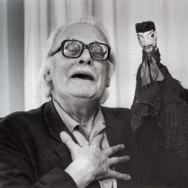





چکیده:
نوشتهٔ عروسکهایی برای فلیکس را در گوشه کاملتر بخوانید.
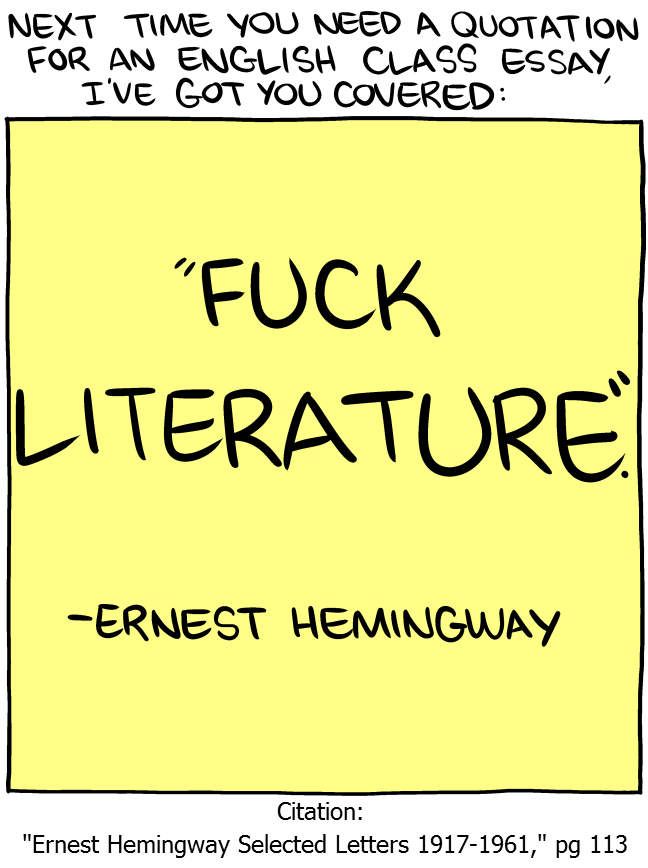
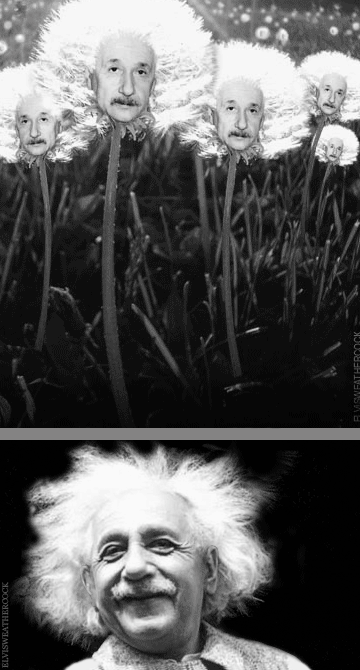

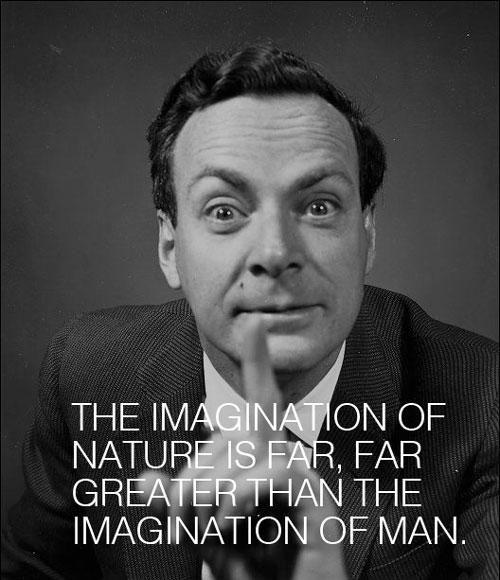
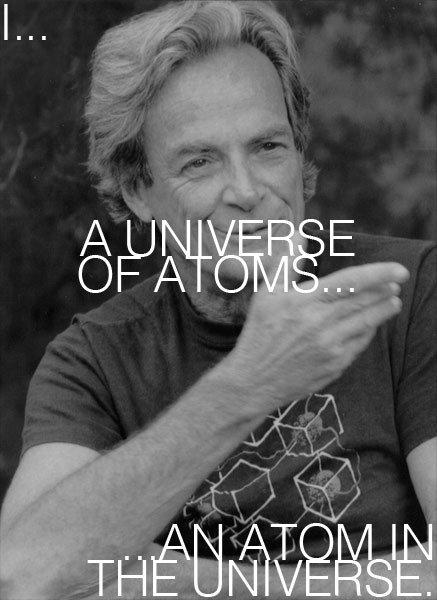
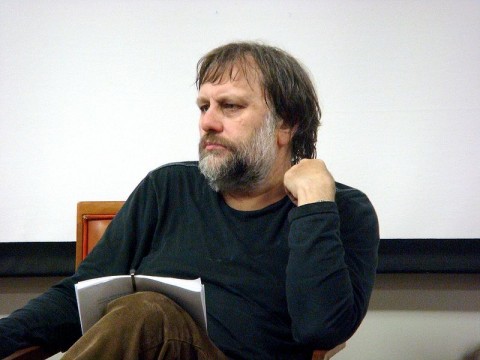








 راههایی برای ناپدید شدن
راههایی برای ناپدید شدن نقاشیهایی برای خوردن
نقاشیهایی برای خوردن آهنگهایی برای ۹ انگشت
آهنگهایی برای ۹ انگشت